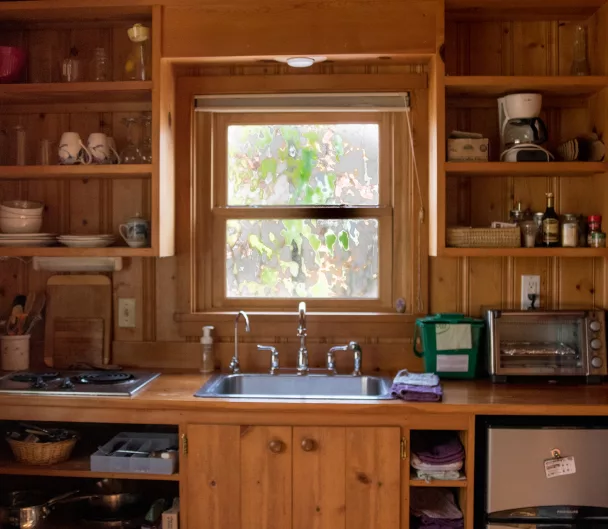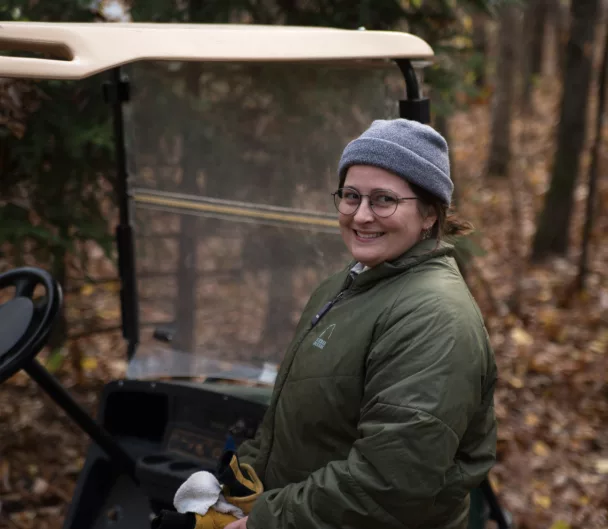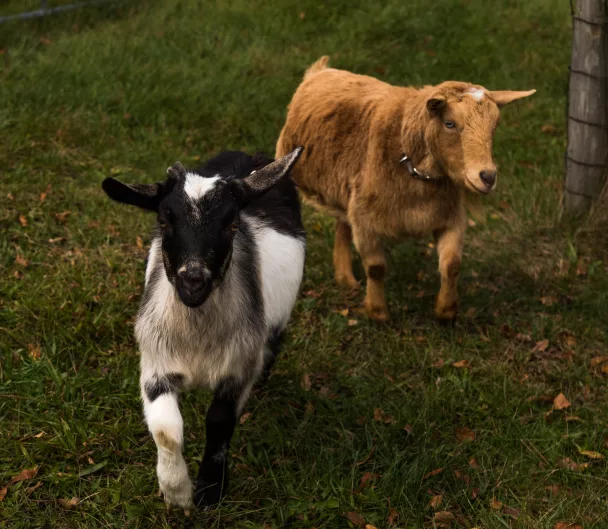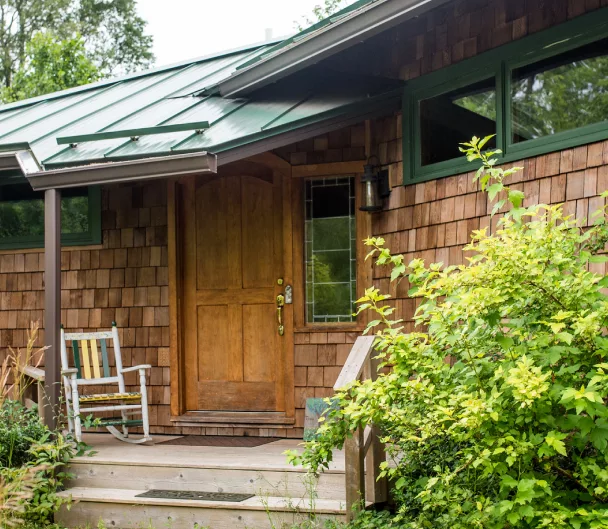Land + Ecology
Ecological Practices
Past, Present, Future
Alongside GilChrist’s nurturing of contemplation and inner work, we also seek to be good stewards of the land within our care, creating a holistic cycle of mutual regeneration between humans and the rest of the natural world.
We steward this land in the awareness that it is the ancestral home of Potawatomi, Peoria, and other indigenous nations before it was platted and sold by European settlers under treaties that favored settlers and diminished indigenous life, livelihood, and values. As the current caretakers, we are on a journey to understand the practice of “right relationship” with past and future inhabitants, human and otherwise.
Here are a few of the practices that our staff and guests participate in that reflect our ecological intentions.

Treading Lightly
As part of our effort to minimize negative impact on the health of both the natural world and humans, we provide eco-friendly and non-toxic cleaning supplies in the cabins, as well as recycled paper products like toilet paper and paper towels. We’ve shifted away from plastic trash bags and food storage containers to compostable or biodegradable alternatives. We supply washable dishware and utensils in all our kitchen spaces rather than disposable products.

Energy Usage
GilChrist staff members have worked hard to establish practices that control energy consumption, for example, setting thermostats at energy-saving levels when cabins are not in use. Over the years, we have worked with our local power company and energy consultants to make changes that further reduce energy consumption. Staff use rechargeable electric golf carts when working, and a charging station with a golf cart and an electric car charging hook-up is available for guests to use. In 2017, three sets of solar panels were installed by a local company, whose owner is a citizen of the Pokagon Band of Potawatomi, to offset electricity consumption. The simple abundance of our smaller cabins encourages us all to consider our consumption habits and what we really need in our daily lives.

Waste
We prioritize recycling and composting as much waste as possible before sending the rest into the trash waste stream. Our rich compost, fed with food scraps, yard waste, and animal manure, feeds gardens throughout the property. Guests are invited to feed the pile with their kitchen scraps. Our staff also recycles batteries, light bulbs, office paper, plastic packaging, office supplies, and scrap metal. Any objects that still have life in them, but are no longer useful at GilChrist, are donated to local non-profit organizations.

Heating and Cooling
Both WindHill and Tree of Life use geothermal systems which use the temperature of the earth to regulate indoor temperature efficiently. The WindHill system creates water as a byproduct, which feeds into the upper pond. The cabins use highly efficient heating and cooling systems called mini-splits. These use heat pump technology to pull heat or coolness from the outside air, combined with an efficient interior fan that distributes air and regulates temperature.
Land Care
Several staff members are trained in permaculture (an approach to ecological and human systems based in part on indigenous knowledge and practice) and engage in ongoing work to apply its principles of “earth care, people care, and fair share” to our interaction with the land.
Some of our largest efforts to date have been in service of improving biodiversity. In 2003, we partnered with a local native landscaping company to begin an intensive, multi-year prairie restoration. In addition to careful seeding, cutting, grazing, and controlled burns, we’ve welcomed students who do plant and insect research that yields helpful feedback. In 2017, we added two large ponds and restored another pond.
Landscape plants are carefully selected for their beneficial role in the overall ecosystem of GilChrist and the surrounding area, and mowing is kept to a minimum. The vegetable garden is maintained with organic, low-tech methods, and guests are welcome to harvest fresh produce and herbs in season. Trees on the land are maintained with an eye both to safety for guests and structures as well as to the health of the ecosystem. Tree saplings for future plantings are obtained from the local conservation district. Walking trails and outdoor seating areas are designed for contemplative value, both for the inner self and for the natural world that nurtures life and invites our reciprocal care. Our work of hospitality extends to all of creation and aspires to healing.